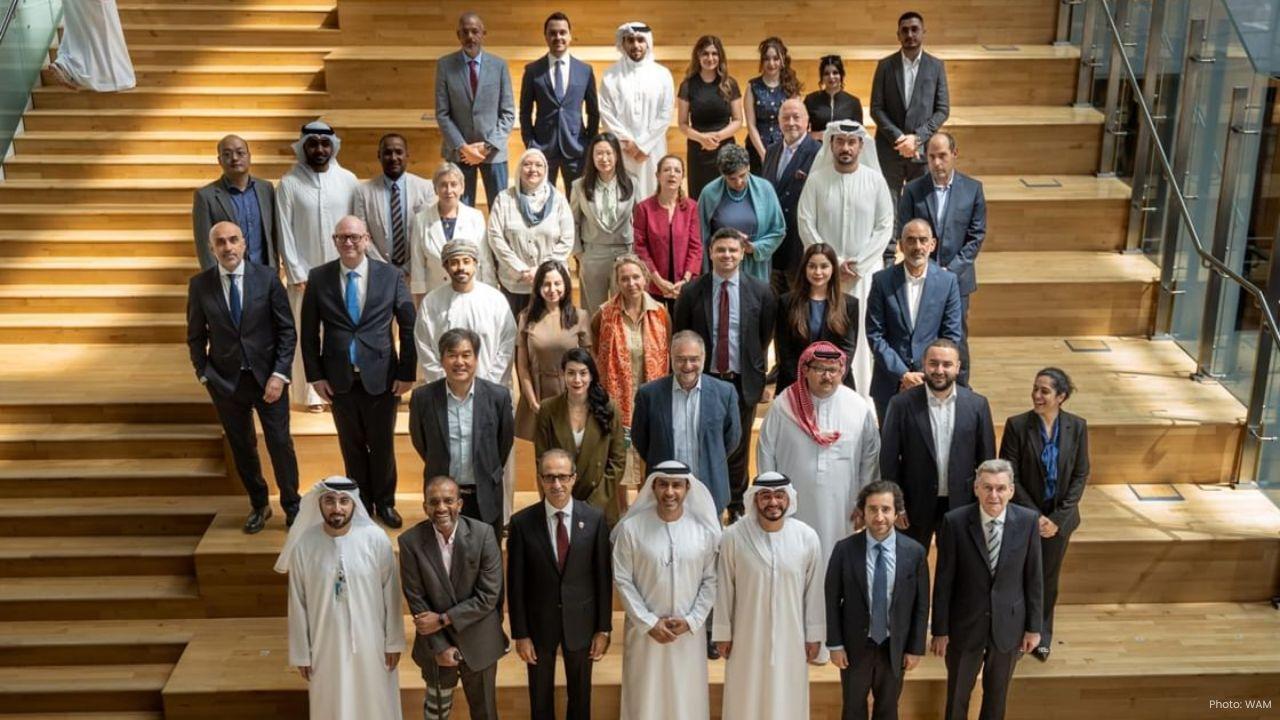
Post by : Vansh Kumar
The global economy is undergoing a profound transformation, fueled by groundbreaking innovations that are redefining growth, productivity, and competitiveness. The era of traditional industries dominating economic development is giving way to a new age of prosperity, where technology, sustainable practices, and creative solutions drive progress. From artificial intelligence to fintech, these innovations are reshaping global economies, opening new opportunities for businesses, investors, and policymakers alike.
One of the most significant factors contributing to the new age of prosperity is the rapid advancement of technology. Digital transformation, automation, and artificial intelligence (AI) are revolutionizing industries by improving efficiency, reducing costs, and enabling smarter decision-making.
For example, AI-powered analytics help businesses anticipate market trends, optimize supply chains, and personalize customer experiences. Automation in manufacturing increases production speed while maintaining quality, and blockchain technology is creating more secure and transparent financial systems. These innovations not only boost productivity but also foster economic resilience, helping countries adapt to global challenges.
The financial sector is at the forefront of economic innovation. Fintech companies are redefining banking, payments, and investment by offering faster, more accessible, and more efficient services. Mobile banking apps, peer-to-peer lending platforms, and cryptocurrency exchanges are changing the way people interact with money.
Fintech also plays a critical role in financial inclusion. In regions where traditional banking infrastructure is limited, digital platforms provide access to credit, savings, and investment opportunities, enabling more people to participate in the economy. By bridging the gap between technology and finance, fintech is a key driver in reshaping global economies.
The new age of prosperity is not solely about technological advancement; sustainability is equally crucial. Businesses and governments are increasingly adopting environmentally friendly practices, recognizing that long-term economic growth depends on responsible resource management. Renewable energy, green manufacturing, and sustainable agriculture are examples of innovations that support economic development while protecting the planet.
Investors are also prioritizing Environmental, Social, and Governance (ESG) criteria when making decisions. Companies that embrace sustainable practices attract more investment, enhance their reputation, and ensure long-term profitability. By integrating sustainability into economic strategies, nations and corporations can achieve growth that is both profitable and responsible.
Emerging markets are playing an increasingly important role in the new age of prosperity. Countries in Asia, Africa, and Latin America are experiencing rapid industrialization, urbanization, and technological adoption, contributing significantly to global economic growth.
These markets offer new opportunities for investment, trade, and innovation. Companies that expand into emerging economies can access new consumer bases, lower production costs, and leverage local expertise. At the same time, emerging markets are driving global innovation by developing solutions tailored to local needs, such as mobile payment systems in regions with limited banking infrastructure.
Economic prosperity depends not only on technology but also on the talent that drives innovation. Education and workforce development are essential for equipping individuals with the skills needed in the modern economy. Programs focused on STEM (Science, Technology, Engineering, and Mathematics), digital literacy, and entrepreneurship are preparing the workforce to meet the demands of emerging industries.
By fostering innovation in education, nations can enhance productivity, encourage entrepreneurship, and create a more adaptable and resilient workforce. This investment in human capital ensures that the benefits of the new age of prosperity are sustainable and widely shared.
Digital transformation is reshaping industries across the board. Retail, healthcare, logistics, and energy sectors are leveraging technology to improve efficiency and deliver better services. E-commerce platforms enable businesses to reach global consumers, telemedicine provides remote healthcare access, and smart grids optimize energy distribution.
These transformations are not just about technology adoption—they are about creating more agile, responsive, and customer-focused industries. By embracing digital innovation, businesses contribute to the overall growth of global economies, generating wealth, jobs, and opportunities worldwide.
Governments play a crucial role in fostering a new age of prosperity. Policies that support innovation, research, and entrepreneurship encourage economic growth and competitiveness. Regulatory frameworks must balance innovation with security and fairness, ensuring that technological advances benefit society as a whole.
Public-private partnerships are also critical in driving innovation. Collaborative efforts between governments, businesses, and academic institutions accelerate research, support startups, and implement scalable solutions that address societal challenges while promoting economic growth.
While innovations offer immense potential, there are challenges to navigating the new age of prosperity. Rapid technological change can exacerbate inequality if access to resources, education, and infrastructure is uneven. Cybersecurity threats, data privacy concerns, and economic volatility are additional risks that require careful management.
To ensure sustainable growth, stakeholders must focus on inclusivity, resilience, and adaptability. Investments in education, digital infrastructure, and regulatory frameworks are essential to harness innovation effectively while mitigating risks.
The content in this article is intended for informational and educational purposes only. While every effort has been made to ensure accuracy, economic trends and financial information are constantly evolving. Readers are encouraged to conduct their own research and seek professional advice before making business, investment, or financial decisions. GCC news network is not responsible for any outcomes resulting from the use of this content.
#trending #latest #GlobalEconomy #EconomicInnovation #NewAgeOfProsperity #FintechRevolution #ArtificialIntelligence #SustainableGrowth #DigitalTransformation #EconomicTrends #InnovationDrivenEconomy #FutureOfFinance #GCCNews #GCCUpdates #GCCTech #GCCInnovation #ArabWorldNews #GCCTrends #DigitalGCC #GCCBusiness #GCCFuture #GCCTechnology #GCCInsights










South Korean Workers Return After US Immigration Raid Shock
A plane brought back 300 South Koreans after a US raid. Seoul now seeks new visa rules to protect wo

Microsoft And OpenAI Sign New Deal To Shape Future Partnership
Microsoft and OpenAI sign a new deal to reshape their partnership, supporting OpenAI’s move toward a

Nepal Gen Z Protests Burn Parliament And Luxury Hotels In Chaos
Massive Gen Z protests in Nepal target elites’ wealth, burning parliament and top hotels, causing de

ITF Appoints Tie Break Tens As Official Partner For Junior Tennis
The ITF has named Tie Break Tens its official partner, integrating the 10-point tiebreak format into

Charlie Kirk Shot Dead In Utah, Police Seek Help To Find Killer
Right-wing activist Charlie Kirk was shot dead at Utah Valley University. Police seek public help as

Indian Airlines Resume Flights to Kathmandu After Nepal Unrest Ends
Indian airlines resume normal flights to Kathmandu as Tribhuvan Airport reopens, helping stranded pa